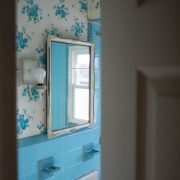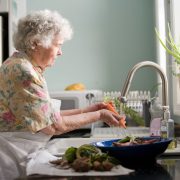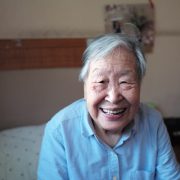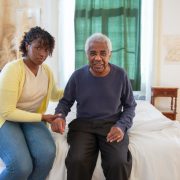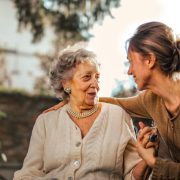[vc_row type=”in_container” full_screen_row_position=”middle” column_margin=”default” column_direction=”default” column_direction_tablet=”default” column_direction_phone=”default” scene_position=”center” text_color=”dark” text_align=”left” row_border_radius=”none” row_border_radius_applies=”bg” overlay_strength=”0.3″ gradient_direction=”left_to_right” shape_divider_position=”bottom” bg_image_animation=”none”][vc_column column_padding=”no-extra-padding” column_padding_tablet=”inherit” column_padding_phone=”inherit” column_padding_position=”all” column_element_spacing=”default” background_color_opacity=”1″ background_hover_color_opacity=”1″ column_shadow=”none” column_border_radius=”none” column_link_target=”_self” gradient_direction=”left_to_right” overlay_strength=”0.3″ width=”1/1″ tablet_width_inherit=”default” tablet_text_alignment=”default” phone_text_alignment=”default” bg_image_animation=”none” border_type=”simple” column_border_width=”none” column_border_style=”solid”][vc_column_text]
If you are a caretaker or family member of someone with dementia, communication is key. People with dementia often have trouble communicating their thoughts and feelings because they may forget what they want to say mid-sentence, become agitated when frustrated, or not know the right words to use. At Kinkaid, we understand the importance of communication and offer the following guide on how to talk to a parent with dementia.
What Should You Not Say to Someone with Dementia?
There are a few cardinal rules regarding what you should not say to a person with dementia, including:
-
- Try not to argue with a parent experiencing dementia. Telling them to calm down and raising your voice can bring unwanted energy into the situation, and only make them agitated.
- Avoid correcting a person with dementia. They can mix up their words or get facts wrong. When they do, correcting them can lead to frustration and confusion.
- When speaking to someone with dementia, always treat them as an equal. Nobody likes to feel infantilized, so skip the baby talk.
- Questions like “What did you have for breakfast?” or “How are you feeling today?” can be frustrating for a person with dementia who cannot always remember the answer. Instead, focus on the present moment and what they are currently engaged in.
- Speaking about death can be frightful for anyone. Bringing up friends who have passed away can lead to agitation.
- Try not to tell them to stop repeating themselves. People experiencing memory loss do not recognize that they are repeating conversations, so this can seem like you are putting them down for no reason.
- Similarly, do not ask them if they remember something. This can be a frustrating experience – they can recognize that they should remember but are incapable of doing so.
These guidelines can help to alleviate much of the frustration and arguments in speaking with a parent with dementia. Remember that their cognitive challenges are often just as frustrating for them as they are for you and try to show compassion for their position. Reducing conflict and arguments with a parent with dementia improves their quality of life as well as your own.
How to Talk to a Parent with Dementia
As there are things that you should not say to a person with dementia, there are also things that you should do when talking to them.
This includes:
-
- Sticking to open-ended questions that give them more room to answer, like “How was your day?”
- Being aware of your tone—it should always be gentle and patient. People with dementia often match the energy of other people in the room, so remaining calm can help them feel at ease.
- Using short, simple words and sentences and speaking slowly and distinctively.
- Not being afraid of silence with a person experiencing dementia. They may have trouble articulating their thoughts or might need time to think about what you have said without feeling rushed or pressured into responding right away.
Behaving in this manner allows people with dementia to be active participants in a conversation, minimizes the amount of time in frustrating exchanges, and can help them to adjust to their recent changes in mental health.
It is often beneficial to play along when people with dementia are discussing things in the past that are no longer true or are repeating things they have said multiple times already. Pointing out the inconsistencies in their speech only draws attention to their impairment and can cause them to grow frustrated. A few key guidelines include:
-
- If a person with dementia repeats themselves, act as though they are saying it for the first time. This could include answering the same question several times over.
- If they get their facts mixed up or are unclear about something they have said, just go with the flow and pretend you understand what they are saying.
- Instead of asking if they remember something, speak about your memories together in more general terms without expecting a response one way or another.
- Being agreeable if they talk about their deceased loved ones as if they are alive or are in the room with them. Ask them questions that lead them to continue believing their loved one is alive.
This should not be viewed as an act of deception. Rather, you are helping them to manage the frustration of cognitive decline that they have no control over.
Should You Tell a Person with Dementia That They Have Dementia?
Telling someone that they have dementia can be difficult, but it is often something that most people want to know, especially at early onset when more can be done to treat the disease. It is a good idea for their health care professional and their family to have that discussion with them if they want to know.
When you tell them, be sure to use gentle, understanding language and avoid making them feel like they are being blamed or that they are a victim. Explain what dementia is in clear, simple terms and assure them that there are treatments available that can help improve their quality of life.
As a general guideline, several things will need to be explained:
-
- An explanation as to why the symptoms are occurring.
- A discussion of the form of dementia, in terms that are appropriate to the person’s level of understanding.
- Any possible treatment for symptoms.
- Specialized services and support programs that are available for people with dementia.
On the other hand, the rights of individuals who don’t want to know they have dementia should be respected. Doctors and caregivers should seek to understand their patients’ preferences and not make it routine to always disclose the condition to them. Instead, they should act appropriately according to their patient’s choices.
Can Dementia Get Worse Suddenly?
Dementia that worsens suddenly is known as a rapid decline. There are several reasons why this happens, including physical changes to the brain that get progressively worse over time.
That means that it can also get worse suddenly, depending on the type of dementia, the individual and how far the condition has progressed. However, once a certain threshold of progression is reached, there is almost always a rapid decline.
In addition, there is some evidence that hospital stays, particularly if they involve surgery, can cause a condition known as hospital delirium in patients over seventy. The American Geriatrics Society estimates that hospital delirium affects about a third of these patients, causing delirium or rapid worsening of existing delirium.
What to Do if You Suspect Your Loved One Has Dementia?
There are several ways that you can get help if you suspect your loved one has dementia.
One way is to discuss changes with your loved one about observed cognitive changes. Discuss seeing a doctor as soon as possible. Also, talk about the problem of driving and that they should always have their ID on them.
Another way is to see a doctor and have them do a medical assessment, which is a series of tests to diagnose the condition. This is the only way to determine the cause of cognitive challenges and provide accurate treatment.
Another Issue: A Parent with Dementia Refuses Help
A parent with dementia that is in denial may refuse help. A way you can help when this happens is to have a family meeting. A parent with dementia may be more open to getting help if there is consensus among the family that something is wrong, rather than a single person advising them to seek help.
During the get-together, start planning and gathering documents like the Estate Plan, Health Care Directive, and the Durable Power of Attorney for Health Care.
Remember, people with dementia have the right to refuse medical care if they demonstrate they have adequate mental capacity.
Kinkaid Offers Specialized Care Options for Dementia
Kinkaid offers in-home dementia and Alzheimer’s care throughout the Los Angeles area. You should consider at-home treatment options for dementia if your loved one is experiencing any of the following symptoms:
-
- Memory loss
- Change in thinking skills
- Difficulty focusing
- Low attention span
- Lack of reasoning skills
Treatment depends on the underlying cause of the disease, but Kinkaid Private Care can provide several specialized care options. The compassionate and professional in-home care providers at Kinkaid know how to care for a parent with dementia and can guarantee your loved one the comfort of remaining in his or her home during treatment.
We also prioritize communication with seniors and their families so that they receive everything they need in an effective and timely manner.
If you would like more information about how to talk to a parent with dementia or our specialized in-home care, please visit our website or call us at (866) 337-4596. During the consult, we can go over the many options available and determine the best course of action for your loved one.
FAQs
What are some coping strategies for dementia?
It is important to take care of your physical and mental health by doing activities that you enjoy, staying active, getting enough rest and eating nutritious meals.
How do you calm a parent with dementia?
It is important to remain calm, patient and supportive of your parent during periods of agitation. Try to identify the trigger and use other activites to distract away from the issue like calming music, gentle talk or art therapy.
What are signs that dementia is getting worse?
Signs of worsening dementia include increased confusion and/or memory loss, needing more assistance with daily tasks like bathing and grooming and significant personality changes. Connect with one of our nurse case managers today to learn how you can keep your loved on safe at home.
Is it best to keep a dementia patient at home?
In most cases, it is possible to keep a dementia patient home and ensure their safety if you have the right team in place. Connect with one of our nurse case managers today to discuss the benefits of keeping your loved one at home!
[/vc_column_text][/vc_column][/vc_row][vc_row type=”in_container” full_screen_row_position=”middle” column_margin=”default” column_direction=”default” column_direction_tablet=”default” column_direction_phone=”default” scene_position=”center” text_color=”dark” text_align=”left” row_border_radius=”none” row_border_radius_applies=”bg” overlay_strength=”0.3″ gradient_direction=”left_to_right” shape_divider_position=”bottom” bg_image_animation=”none”][vc_column column_padding=”no-extra-padding” column_padding_tablet=”inherit” column_padding_phone=”inherit” column_padding_position=”all” column_element_spacing=”default” background_color_opacity=”1″ background_hover_color_opacity=”1″ column_shadow=”none” column_border_radius=”none” column_link_target=”_self” gradient_direction=”left_to_right” overlay_strength=”0.3″ width=”1/1″ tablet_width_inherit=”default” tablet_text_alignment=”default” phone_text_alignment=”default” bg_image_animation=”none” border_type=”simple” column_border_width=”none” column_border_style=”solid”][vc_raw_html]JTNDJTIxLS0lMjBCZWdpbiUyME1haWxjaGltcCUyMFNpZ251cCUyMEZvcm0lMjAtLSUzRSUwQSUzQ2xpbmslMjBocmVmJTNEJTIyJTJGJTJGY2RuLWltYWdlcy5tYWlsY2hpbXAuY29tJTJGZW1iZWRjb2RlJTJGY2xhc3NpYy0wNzE4MjIuY3NzJTIyJTIwcmVsJTNEJTIyc3R5bGVzaGVldCUyMiUyMHR5cGUlM0QlMjJ0ZXh0JTJGY3NzJTIyJTNFJTBBJTNDc3R5bGUlMjB0eXBlJTNEJTIydGV4dCUyRmNzcyUyMiUzRSUwQSUwOSUyM21jX2VtYmVkX3NpZ251cCU3QmJhY2tncm91bmQlM0ElMjNmZmYlM0IlMjBjbGVhciUzQWxlZnQlM0IlMjBmb250JTNBMTRweCUyMEhlbHZldGljYSUyQ0FyaWFsJTJDc2Fucy1zZXJpZiUzQiUyMCUyMHdpZHRoJTNBNjAwcHglM0IlN0QlMEElMDklMkYlMkElMjBBZGQlMjB5b3VyJTIwb3duJTIwTWFpbGNoaW1wJTIwZm9ybSUyMHN0eWxlJTIwb3ZlcnJpZGVzJTIwaW4lMjB5b3VyJTIwc2l0ZSUyMHN0eWxlc2hlZXQlMjBvciUyMGluJTIwdGhpcyUyMHN0eWxlJTIwYmxvY2suJTBBJTA5JTIwJTIwJTIwV2UlMjByZWNvbW1lbmQlMjBtb3ZpbmclMjB0aGlzJTIwYmxvY2slMjBhbmQlMjB0aGUlMjBwcmVjZWRpbmclMjBDU1MlMjBsaW5rJTIwdG8lMjB0aGUlMjBIRUFEJTIwb2YlMjB5b3VyJTIwSFRNTCUyMGZpbGUuJTIwJTJBJTJGJTBBJTNDJTJGc3R5bGUlM0UlMEElM0NkaXYlMjBpZCUzRCUyMm1jX2VtYmVkX3NpZ251cCUyMiUzRSUwQSUyMCUyMCUyMCUyMCUzQ2Zvcm0lMjBhY3Rpb24lM0QlMjJodHRwcyUzQSUyRiUyRmtpbmthaWRwcml2YXRlY2FyZS51czIwLmxpc3QtbWFuYWdlLmNvbSUyRnN1YnNjcmliZSUyRnBvc3QlM0Z1JTNEYjQ3ODdhYWIxMGVjMDAzZmVlOTkyYTA0NCUyNmFtcCUzQmlkJTNEZjA0NzA3NzFkNiUyNmFtcCUzQmZfaWQlM0QwMDZiNTRlNmYwJTIyJTIwbWV0aG9kJTNEJTIycG9zdCUyMiUyMGlkJTNEJTIybWMtZW1iZWRkZWQtc3Vic2NyaWJlLWZvcm0lMjIlMjBuYW1lJTNEJTIybWMtZW1iZWRkZWQtc3Vic2NyaWJlLWZvcm0lMjIlMjBjbGFzcyUzRCUyMnZhbGlkYXRlJTIyJTIwdGFyZ2V0JTNEJTIyX2JsYW5rJTIyJTIwbm92YWxpZGF0ZSUzRSUwQSUyMCUyMCUyMCUyMCUyMCUyMCUyMCUyMCUzQ2RpdiUyMGlkJTNEJTIybWNfZW1iZWRfc2lnbnVwX3Njcm9sbCUyMiUzRSUwQSUyMCUyMCUyMCUyMCUyMCUyMCUyMCUyMCUzQ2gyJTNFU3RheSUyMGluJTIwdGhlJTIwS25vdyUzQyUyRmgyJTNFU3Vic2NyaWJlJTIwdG8lMjBvdXIlMjBuZXdzbGV0dGVyJTIwYW5kJTIwcmVjZWl2ZSUyMGFuJTIwaW4tZGVwdGglMjBhcnRpY2xlJTIwYWJvdXQlMjBEZW1lbnRpYSUyMENhcmUlMjBmcm9tJTIwb3VyJTIwbnVyc2UuJTIwJTBBJTIwJTIwJTIwJTIwJTIwJTIwJTIwJTIwJTNDZGl2JTIwY2xhc3MlM0QlMjJpbmRpY2F0ZXMtcmVxdWlyZWQlMjIlM0UlM0NzcGFuJTIwY2xhc3MlM0QlMjJhc3RlcmlzayUyMiUzRSUyQSUzQyUyRnNwYW4lM0UlMjBpbmRpY2F0ZXMlMjByZXF1aXJlZCUzQyUyRmRpdiUzRSUwQSUzQ2RpdiUyMGNsYXNzJTNEJTIybWMtZmllbGQtZ3JvdXAlMjIlM0UlMEElMDklM0NsYWJlbCUyMGZvciUzRCUyMm1jZS1FTUFJTCUyMiUzRUVtYWlsJTIwQWRkcmVzcyUyMCUyMCUzQ3NwYW4lMjBjbGFzcyUzRCUyMmFzdGVyaXNrJTIyJTNFJTJBJTNDJTJGc3BhbiUzRSUwQSUzQyUyRmxhYmVsJTNFJTBBJTA5JTNDaW5wdXQlMjB0eXBlJTNEJTIyZW1haWwlMjIlMjB2YWx1ZSUzRCUyMiUyMiUyMG5hbWUlM0QlMjJFTUFJTCUyMiUyMGNsYXNzJTNEJTIycmVxdWlyZWQlMjBlbWFpbCUyMiUyMGlkJTNEJTIybWNlLUVNQUlMJTIyJTIwcmVxdWlyZWQlM0UlMEElMDklM0NzcGFuJTIwaWQlM0QlMjJtY2UtRU1BSUwtSEVMUEVSVEVYVCUyMiUyMGNsYXNzJTNEJTIyaGVscGVyX3RleHQlMjIlM0UlM0MlMkZzcGFuJTNFJTBBJTNDJTJGZGl2JTNFJTBBJTNDZGl2JTIwY2xhc3MlM0QlMjJtYy1maWVsZC1ncm91cCUyMGlucHV0LWdyb3VwJTIyJTIwc3R5bGUlM0QlMjJkaXNwbGF5JTNBbm9uZSUyMiUzRSUwQSUyMCUyMCUyMCUyMCUzQ3N0cm9uZyUzRUFsemhlaW1lciUyMCUzQyUyRnN0cm9uZyUzRSUwQSUyMCUyMCUyMCUyMCUzQ3VsJTNFJTNDbGklM0UlMEElMjAlMjAlMjAlMjAlM0NpbnB1dCUyMHR5cGUlM0QlMjJjaGVja2JveCUyMiUyMHZhbHVlJTNEJTIyMSUyMiUyMG5hbWUlM0QlMjJncm91cCU1QjI3OTU4MCU1RCU1QjElNUQlMjIlMjBpZCUzRCUyMm1jZS1ncm91cCU1QjI3OTU4MCU1RC0yNzk1ODAtMCUyMiUyMGNoZWNrZWQlM0UlMEElMjAlMjAlMjAlMjAlM0NsYWJlbCUyMGZvciUzRCUyMm1jZS1ncm91cCU1QjI3OTU4MCU1RC0yNzk1ODAtMCUyMiUzRUFsemhlaW1lciUzQyUyRmxhYmVsJTNFJTBBJTNDJTJGbGklM0UlMEElM0MlMkZ1bCUzRSUwQSUyMCUyMCUyMCUyMCUzQ3NwYW4lMjBpZCUzRCUyMm1jZS1ncm91cCU1QjI3OTU4MCU1RC1IRUxQRVJURVhUJTIyJTIwY2xhc3MlM0QlMjJoZWxwZXJfdGV4dCUyMiUzRSUzQyUyRnNwYW4lM0UlMEElM0MlMkZkaXYlM0UlMEElM0NkaXYlMjBoaWRkZW4lM0QlMjJ0cnVlJTIyJTNFJTNDaW5wdXQlMjB0eXBlJTNEJTIyaGlkZGVuJTIyJTIwbmFtZSUzRCUyMnRhZ3MlMjIlMjB2YWx1ZSUzRCUyMjMwNjg1NDglMjIlM0UlM0MlMkZkaXYlM0UlMEElMDklM0NkaXYlMjBpZCUzRCUyMm1jZS1yZXNwb25zZXMlMjIlMjBjbGFzcyUzRCUyMmNsZWFyJTIyJTNFJTBBJTA5JTA5JTNDZGl2JTIwY2xhc3MlM0QlMjJyZXNwb25zZSUyMiUyMGlkJTNEJTIybWNlLWVycm9yLXJlc3BvbnNlJTIyJTIwc3R5bGUlM0QlMjJkaXNwbGF5JTNBbm9uZSUyMiUzRSUzQyUyRmRpdiUzRSUwQSUwOSUwOSUzQ2RpdiUyMGNsYXNzJTNEJTIycmVzcG9uc2UlMjIlMjBpZCUzRCUyMm1jZS1zdWNjZXNzLXJlc3BvbnNlJTIyJTIwc3R5bGUlM0QlMjJkaXNwbGF5JTNBbm9uZSUyMiUzRSUzQyUyRmRpdiUzRSUwQSUwOSUzQyUyRmRpdiUzRSUyMCUyMCUyMCUyMCUzQyUyMS0tJTIwcmVhbCUyMHBlb3BsZSUyMHNob3VsZCUyMG5vdCUyMGZpbGwlMjB0aGlzJTIwaW4lMjBhbmQlMjBleHBlY3QlMjBnb29kJTIwdGhpbmdzJTIwLSUyMGRvJTIwbm90JTIwcmVtb3ZlJTIwdGhpcyUyMG9yJTIwcmlzayUyMGZvcm0lMjBib3QlMjBzaWdudXBzLS0lM0UlMEElMjAlMjAlMjAlMjAlM0NkaXYlMjBzdHlsZSUzRCUyMnBvc2l0aW9uJTNBJTIwYWJzb2x1dGUlM0IlMjBsZWZ0JTNBJTIwLTUwMDBweCUzQiUyMiUyMGFyaWEtaGlkZGVuJTNEJTIydHJ1ZSUyMiUzRSUzQ2lucHV0JTIwdHlwZSUzRCUyMnRleHQlMjIlMjBuYW1lJTNEJTIyYl9iNDc4N2FhYjEwZWMwMDNmZWU5OTJhMDQ0X2YwNDcwNzcxZDYlMjIlMjB0YWJpbmRleCUzRCUyMi0xJTIyJTIwdmFsdWUlM0QlMjIlMjIlM0UlM0MlMkZkaXYlM0UlMEElMjAlMjAlMjAlMjAlM0NkaXYlMjBjbGFzcyUzRCUyMmNsZWFyJTIyJTNFJTNDaW5wdXQlMjB0eXBlJTNEJTIyc3VibWl0JTIyJTIwdmFsdWUlM0QlMjJTdWJzY3JpYmUlMjIlMjBuYW1lJTNEJTIyc3Vic2NyaWJlJTIyJTIwaWQlM0QlMjJtYy1lbWJlZGRlZC1zdWJzY3JpYmUlMjIlMjBjbGFzcyUzRCUyMmJ1dHRvbiUyMiUzRSUzQyUyRmRpdiUzRSUwQSUyMCUyMCUyMCUyMCUzQyUyRmRpdiUzRSUwQSUzQyUyRmZvcm0lM0UlMEElM0MlMkZkaXYlM0UlMEElM0NzY3JpcHQlMjB0eXBlJTNEJTI3dGV4dCUyRmphdmFzY3JpcHQlMjclMjBzcmMlM0QlMjclMkYlMkZzMy5hbWF6b25hd3MuY29tJTJGZG93bmxvYWRzLm1haWxjaGltcC5jb20lMkZqcyUyRm1jLXZhbGlkYXRlLmpzJTI3JTNFJTNDJTJGc2NyaXB0JTNFJTNDc2NyaXB0JTIwdHlwZSUzRCUyN3RleHQlMkZqYXZhc2NyaXB0JTI3JTNFJTI4ZnVuY3Rpb24lMjglMjQlMjklMjAlN0J3aW5kb3cuZm5hbWVzJTIwJTNEJTIwbmV3JTIwQXJyYXklMjglMjklM0IlMjB3aW5kb3cuZnR5cGVzJTIwJTNEJTIwbmV3JTIwQXJyYXklMjglMjklM0JmbmFtZXMlNUIwJTVEJTNEJTI3RU1BSUwlMjclM0JmdHlwZXMlNUIwJTVEJTNEJTI3ZW1haWwlMjclM0JmbmFtZXMlNUIzJTVEJTNEJTI3QUREUkVTUyUyNyUzQmZ0eXBlcyU1QjMlNUQlM0QlMjdhZGRyZXNzJTI3JTNCZm5hbWVzJTVCNCU1RCUzRCUyN1BIT05FJTI3JTNCZnR5cGVzJTVCNCU1RCUzRCUyN3Bob25lJTI3JTNCJTdEJTI4alF1ZXJ5JTI5JTI5JTNCdmFyJTIwJTI0bWNqJTIwJTNEJTIwalF1ZXJ5Lm5vQ29uZmxpY3QlMjh0cnVlJTI5JTNCJTNDJTJGc2NyaXB0JTNFJTBBJTNDJTIxLS1FbmQlMjBtY19lbWJlZF9zaWdudXAtLSUzRQ==[/vc_raw_html][/vc_column][/vc_row]

